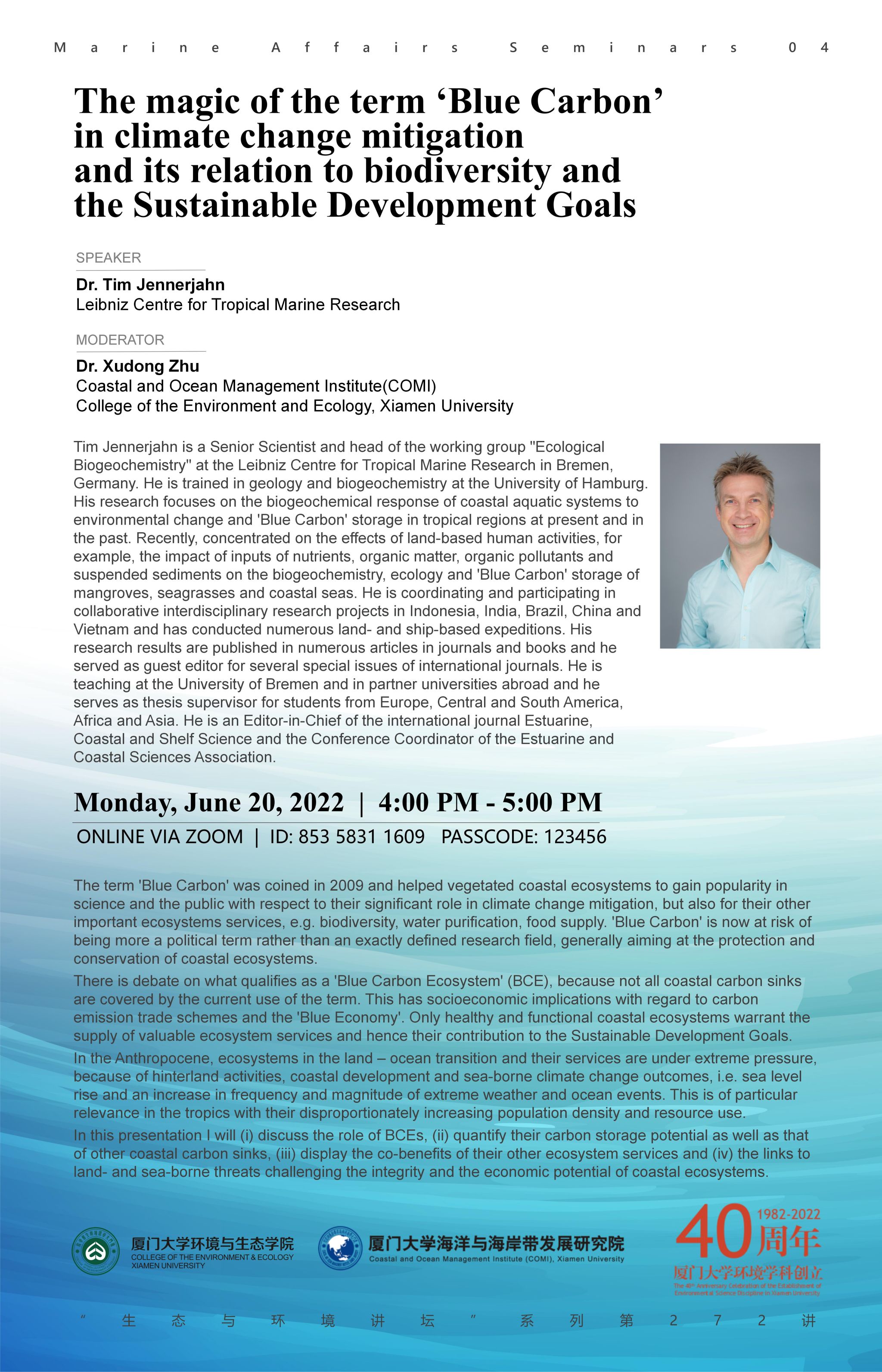Tim Jennerjahn is a Senior Scientist and head of the working group "Ecological Biogeochemistry" at the Leibniz Centre for Tropical Marine Research in Bremen, Germany. He is trained in geology and biogeochemistry at the University of Hamburg. His research focuses on the biogeochemical response of coastal aquatic systems to environmental change and 'Blue Carbon' storage in tropical regions at present and in the past. Recently, concentrated on the effects of land-based human activities, for example, the impact of inputs of nutrients, organic matter, organic pollutants and suspended sediments on the biogeochemistry, ecology and 'Blue Carbon' storage of mangroves, seagrasses and coastal seas. He is coordinating and participating in collaborative interdisciplinary research projects in Indonesia, India, Brazil, China and Vietnam and has conducted numerous land- and ship-based expeditions. His research results are published in numerous articles in journals and books and he served as guest editor for several special issues of international journals. He is teaching at the University of Bremen and in partner universities abroad and he serves as thesis supervisor for students from Europe, Central and South America, Africa and Asia. He is an Editor-in-Chief of the international journal Estuarine, Coastal and Shelf Science and the Conference Coordinator of the Estuarine and Coastal Sciences Association.
The term 'Blue Carbon' was coined in 2009 and helped vegetated coastal ecosystems to gain popularity in science and the public with respect to their significant role in climate change mitigation, but also for their other important ecosystems services, e.g. biodiversity, water purification, food supply. 'Blue Carbon' is now at risk of being more a political term rather than an exactly defined research field, generally aiming at the protection and conservation of coastal ecosystems. There is debate on what qualifies as a 'Blue Carbon Ecosystem' (BCE), because not all coastal carbon sinks are covered by the current use of the term. This has socioeconomic implications with regard to carbon emission trade schemes and the 'Blue Economy'. Only healthy and functional coastal ecosystems warrant the supply of valuable ecosystem services and hence their contribution to the Sustainable Development Goals. In the Anthropocene, ecosystems in the land – ocean transition and their services are under extreme pressure, because of hinterland activities, coastal development and sea-borne climate change outcomes, i.e. sea level rise and an increase in frequency and magnitude of extreme weather and ocean events. This is of particular relevance in the tropics with their disproportionately increasing population density and resource use. In this presentation I will (i) discuss the role of BCEs, (ii) quantify their carbon storage potential as well as that of other coastal carbon sinks, (iii) display the co-benefits of their other ecosystem services and (iv) the links to land- and sea-borne threats challenging the integrity and the economic potential of coastal ecosystems.



